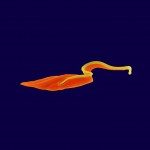Link to Pubmed [PMID] – 36069445
Link to DOI – 10.1128/mbio.01859-22
mBio 2022 Oct; 13(5): e0185922
Centrosomes are the main microtubule-organizing center of the cell. They are normally formed by two centrioles, embedded in a cloud of proteins known as pericentriolar material (PCM). The PCM ascribes centrioles with their microtubule nucleation capacity. Toxoplasma gondii, the causative agent of toxoplasmosis, divides by endodyogeny. Successful cell division is critical for pathogenesis. The centrosome, one of the microtubule organizing centers of the cell, plays central roles in orchestrating the temporal and physical coordination of major organelle segregation and daughter cell formation during endodyogeny. The Toxoplasma centrosome is constituted by multiple domains: an outer core, distal from the nucleus; a middle core; and an inner core, proximal to the nucleus. This modular organization has been proposed to underlie T. gondii’s cell division plasticity. However, the role of the inner core remains undeciphered. Here, we focus on understanding the function of the inner core by finely studying the localization and role of its only known molecular marker; TgCep250L1. We show that upon conditional degradation of TgCep250L1 parasites are unable to survive. Mutants exhibit severe nuclear segregation defects. In addition, the rest of the centrosome, defined by the position of the centrioles, disconnects from the nucleus. We explore the structural defects underlying these phenotypes by ultrastructure expansion microscopy. We show that TgCep250L1’s location changes with respect to other markers, and these changes encompass the formation of the mitotic spindle. Moreover, we show that in the absence of TgCep250L1, the microtubule binding protein TgEB1, fails to localize at the mitotic spindle, while unsegregated nuclei accumulate at the residual body. Overall, our data support a model in which the inner core of the T. gondii centrosome critically participates in cell division by directly impacting the formation or stability of the mitotic spindle. IMPORTANCE Toxoplasma gondii parasites cause toxoplasmosis, arguably the most widespread and prevalent parasitosis of humans and animals. During the clinically relevant stage of its life cycle, the parasites divide by endodyogeny. In this mode of division, the nucleus, containing loosely packed chromatin and a virtually intact nuclear envelope, parcels into two daughter cells generated within a common mother cell cytoplasm. The centrosome is a microtubule-organizing center critical for orchestrating the multiple simultaneously occurring events of endodyogeny. It is organized in two distinct domains: the outer and inner cores. We demonstrate here that the inner core protein TgCEP250L1 is required for replication of T. gondii. Lack of TgCEP250L1 renders parasites able to form daughter cells, while unable to segregate their nuclei. We determine that, in the absence of TgCEP250L1, the mitotic spindle, which is responsible for karyokinesis, does not assemble. Our results support a role for the inner core in nucleation or stabilization of the mitotic spindle in T. gondii.


